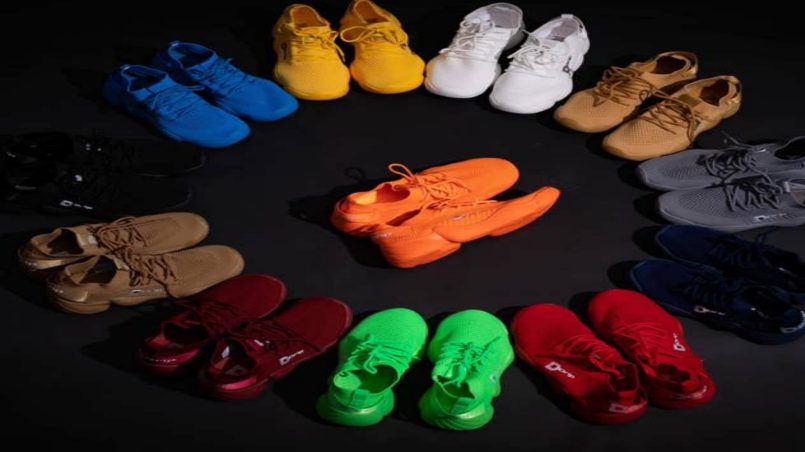In the cutthroat world of fashion, few stories are as captivating as that of Drip Footwear, a South African sneaker brand that skyrocketed to fame only to implode in a dramatic tale of financial mismanagement and personal scandal.

Founded by Lekau Sehoana, a self-made entrepreneur who overcame poverty to build a business empire, Drip Footwear’s meteoric rise and fall serves as a cautionary lesson in the importance of sustainability and responsible leadership.
The Rise of Lekau Sehoana and Drip Footwear
Lekau Sehoana’s journey began in a small village in Limpopo, where he grew up in poverty, often relying on handouts. However, his determination and creativity led him to become a successful entrepreneur.
In 2003, Sehoana, then 14, redesigned a ripped Adidas sneaker using denim jeans and polyurethane. The unique design became a hit, and he started selling handmade sneakers.
Between 2003 and 2006, Sehoana honed his craft, and after studying civil engineering, he researched professional shoe making.
In July 2019, Sehoana launched Drip Footwear, his bold designs, versatility, and collaborative culture made Drip stand out. Without marketing or celebrity endorsements, he sold 600 pairs within six weeks. By December, he manufactured 1,200 more pairs, selling out quickly.

Drip’s success story continued to unfold as the brand expanded rapidly, opening over 40 stores across South Africa and employing more than 200 people. A notable highlight was its R100 million sneaker deal with Cassper Nyovest, dubbed Root of Fame. At its peak, Drip Footwear operated over 30 stores nationwide.
Lekau’s vision, however, went beyond sneakers. He sought to build a lifestyle brand, and to achieve this, Drip Footwear underwent restructuring to become a subsidiary of Drip Group. This umbrella company encompassed various ventures, including Kiddies Republic, Domani Jeans, and Finesse by Drip, a perfume line.

The brand’s influence extended to the sports realm, with Drip collaborating with Moroka Swallows FC to design the team’s home and away kits.
Furthermore, Sehoana also acquired Black Eagles Football Club, with DripEd, the company’s established education center, continuing to support local development.
But little did the world know, beneath the surface of Drip’s glamorous success, a perfect storm was brewing. What happened next would shock the nation and leave the fashion industry reeling. The downfall of Drip Footwear would be as sudden as its rise.
The Fall of Drip Footwear
Beneath the surface, Drip faced financial struggles. In January 2024, WideOpen Platform approached the court to liquidate Drip, citing insolvency and unpaid debts. The Johannesburg High Court ordered Drip’s liquidation, leading to store closures and employee layoffs.
Kim Warren from KWA Attorneys represented Wideopen in the lawsuit and said Wideopen was owed R20 million for advertising services.
A few workers spoke to the Citizen and said that there was no real communication around the dismissals.
The workers did not want to be identified and said that the founder, Lekau Sehoana failed to inform them about what was happening.
“He did not tell us what was actually happening. It was sudden when last Wednesday we saw sheriffs we were told the store is being closed and staff should pack and leave,” a manager explained.
“He had known for months about the (application to liquidate) and we were either getting short-paid or paid late,” the manager said.
Further controversies emerged:
- Unpaid rent: V&A Waterfront terminated Drip’s lease, demanding R1.1 million.
- Foreign exchange violations: Sehoana sought help from Gauteng’s economic development MEC.
- Personal financial woes: Sehoana allegedly failed to pay luxury car installments, owing R6.3 million.
- Divorce dispute: Sehoana’s estranged wife demanded a 50% stake in his assets.
Despite facing significant challenges, Lekau Sehoana hinted at a possible resurgence by unveiling new sneaker designs on social media, fueling speculation about a potential Drip Footwear relaunch – and hopefully, it happens, giving the beloved brand a second chance at success.
The dramatic rise and fall of Drip Footwear serves as a stark reminder of the crucial importance of prudent financial management and sustainability in business.
Unfortunately, the brand’s demise adds to the alarming tally of over 1,000 South African companies that have been liquidated since the start of 2024, underscoring the pressing need for entrepreneurial resilience and adaptability.
Get the latest entrepreneurial success stories, expert tips, and exclusive updates delivered straight to your inbox — Sign up for Entrepreneur Hub SA’s newsletter today!




